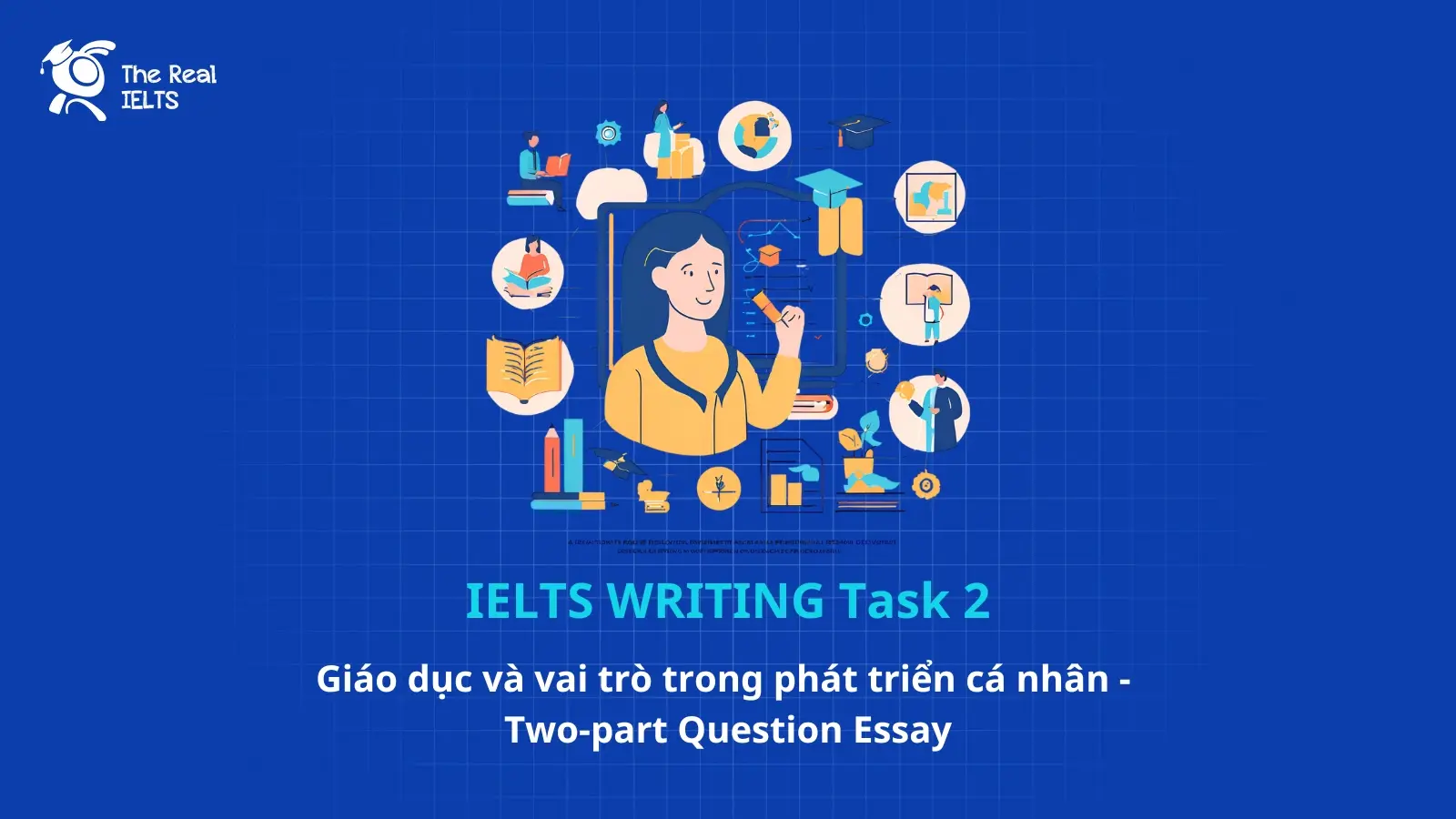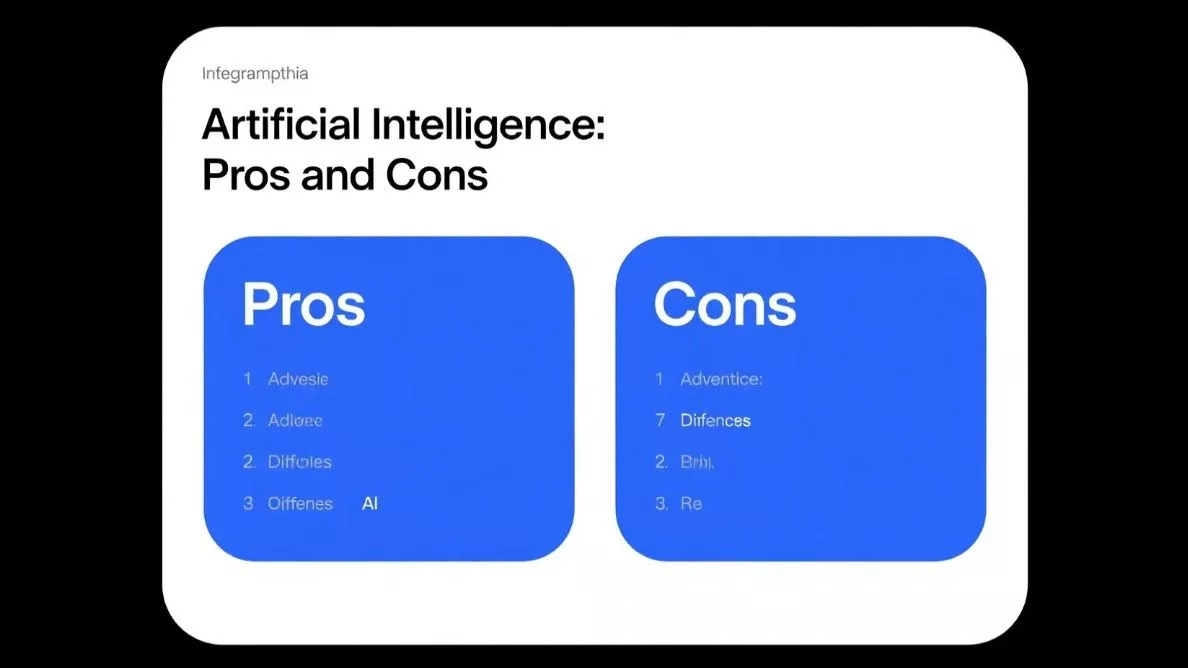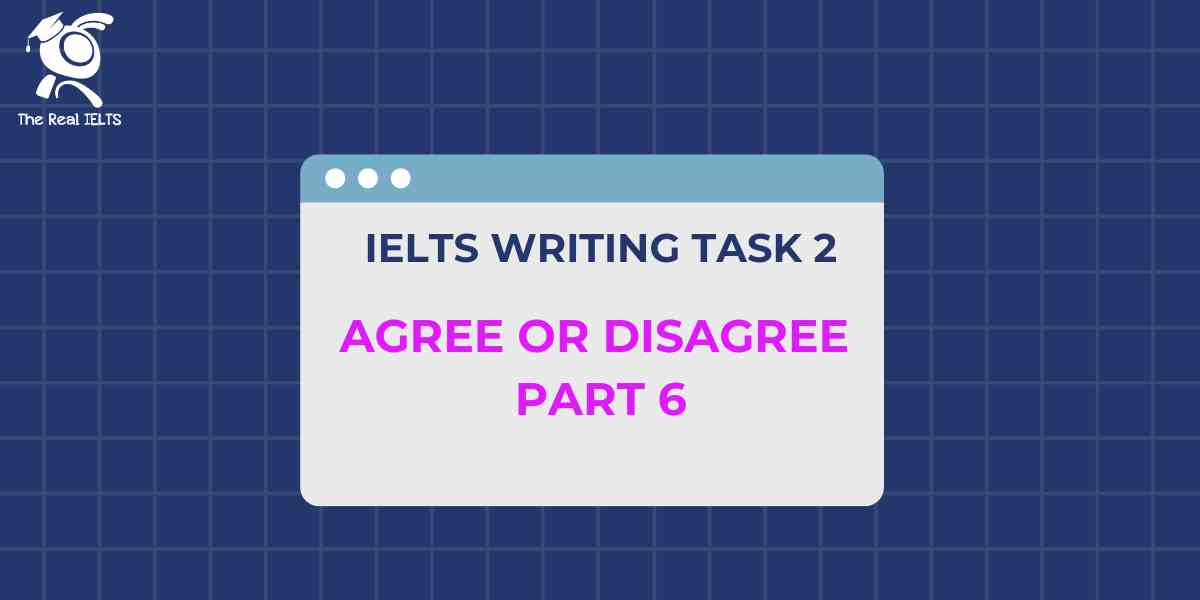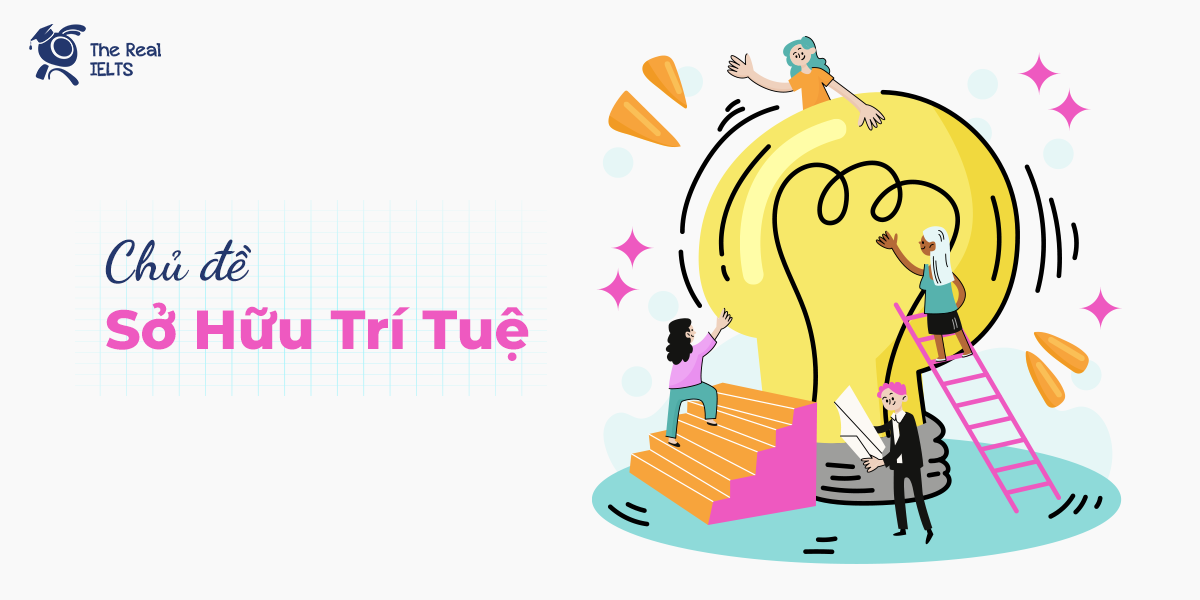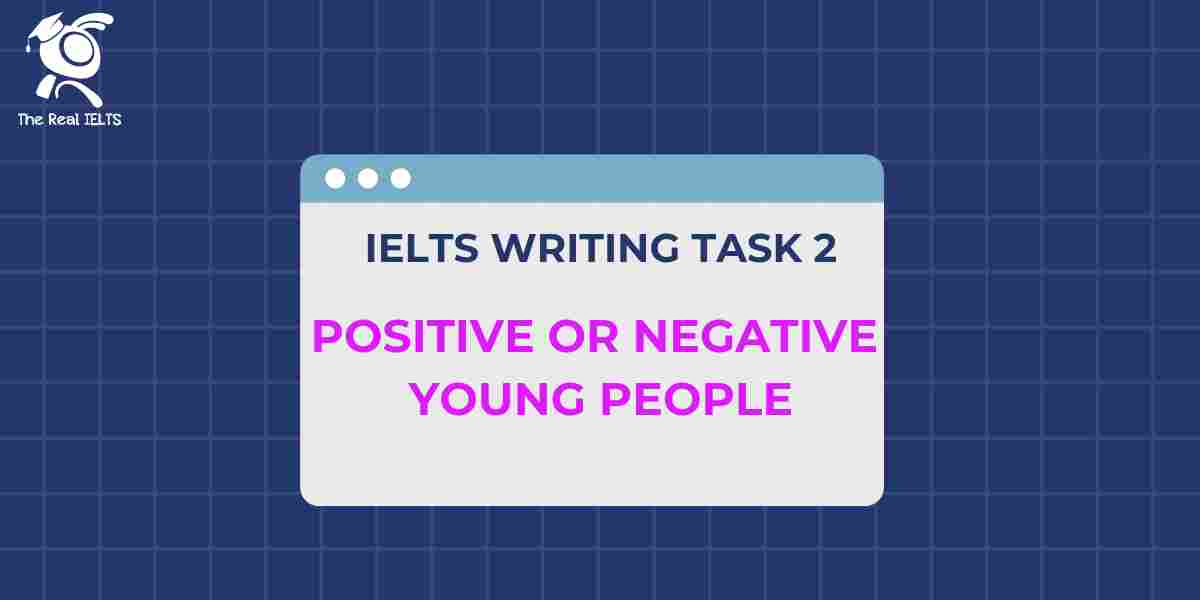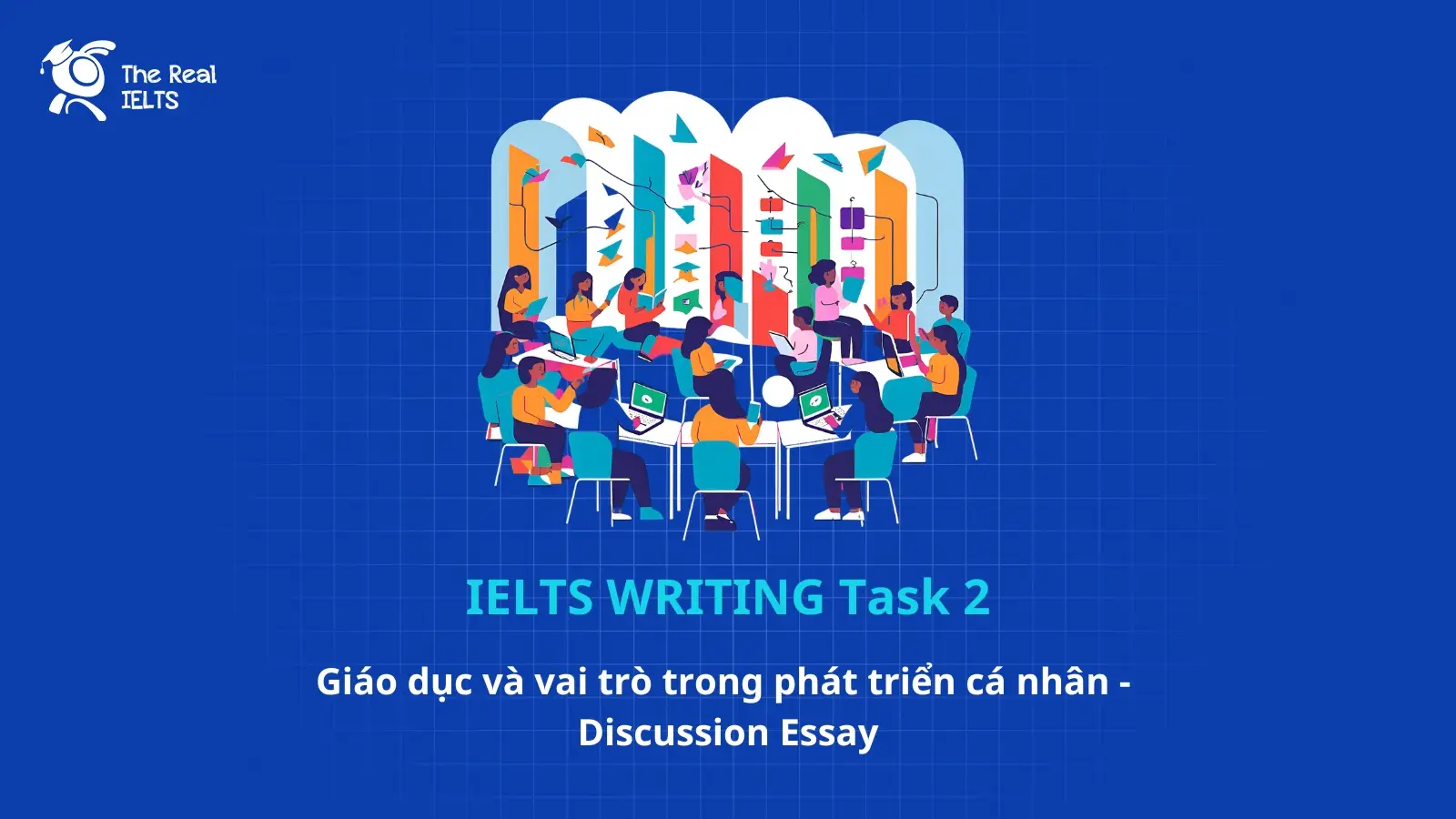IELTS Writing Task 2 thường yêu cầu thí sinh trả lời hai câu hỏi liên quan đến một chủ đề cụ thể. Giáo dục đóng vai trò quan trọng trong sự phát triển cá nhân, nhưng liệu nó có phải là yếu tố quyết định thành công không? Ngoài ra, có những yếu tố nào khác ảnh hưởng đến sự phát triển cá nhân?
Đọc thêm: IELTS Writing Task 2: Giáo dục và vai trò trong phát triển cá nhân – Cause and Effect Essay
Đề bài IELTS Writing Task 2: Giáo dục và vai trò trong phát triển cá nhân- Two-part Question Essay
Education plays a crucial role in shaping an individual’s future. How does education contribute to personal development? What can individuals do to maximize their learning outside of formal education?
Câu trả lời 1
Education is a fundamental factor in shaping an individual’s future, influencing both personal and professional growth. While formal education lays the foundation, continuous learning beyond the classroom is essential for maximizing personal development.
How Education Contributes to Personal Development
- Enhances Knowledge and Cognitive Skills
Education equips individuals with essential knowledge, helping them develop critical thinking, problem-solving, and analytical skills necessary for both personal and professional decision-making. - Improves Communication and Social Abilities
Learning environments encourage interaction, teamwork, and the development of effective communication skills, which are crucial for building relationships and professional networking. - Fosters Discipline and Self-Motivation
Academic learning requires time management, perseverance, and responsibility, instilling a strong work ethic and self-discipline that benefit individuals throughout life. - Boosts Confidence and Self-Esteem
Gaining knowledge and skills helps individuals feel more confident in their abilities, empowering them to take on challenges and pursue their goals. - Encourages Lifelong Learning and Adaptability
Education fosters a mindset of continuous learning, allowing individuals to adapt to new technologies, industry trends, and societal changes.
Maximizing Learning Outside of Formal Education
- Reading and Self-Study
Reading books, research papers, and online articles on diverse subjects enhances knowledge and keeps individuals updated with new information. - Taking Online Courses and Workshops
Platforms like Coursera, Udemy, and Khan Academy offer courses in various fields, allowing individuals to acquire new skills at their own pace. - Engaging in Meaningful Discussions
Joining discussion groups, online forums, and intellectual debates helps improve critical thinking and broaden perspectives. - Practicing Hands-On Learning
Applying theoretical knowledge in real-life situations, such as internships, volunteering, or personal projects, enhances practical skills. - Networking and Mentorship
Learning from experienced professionals, mentors, or peers provides valuable insights and practical guidance for career and personal development. - Developing New Hobbies and Skills
Exploring creative activities like music, writing, coding, or sports fosters mental stimulation and personal growth. - Traveling and Experiencing New Cultures
Exposure to different cultures and perspectives helps individuals develop adaptability, cultural awareness, and a global mindset.
Conclusion
Education is a powerful tool for personal development, shaping an individual’s intellectual, social, and professional abilities. However, learning should not stop at formal education. By actively seeking knowledge through self-study, experiences, and interactions, individuals can continuously grow and adapt in an ever-changing world.
Câu trả lời 2
Education’s contribution to personal development is multifaceted, impacting not just career prospects but also an individual’s overall well-being and societal contribution. It acts as a catalyst for growth in several ways:
- Cognitive Development: Education hones critical thinking, problem-solving, and analytical skills. It encourages individuals to question, analyze, and form their own informed opinions, leading to intellectual independence.
- Knowledge Expansion: Exposure to diverse subjects and perspectives broadens horizons and fosters a deeper understanding of the world and its complexities. This encourages lifelong learning and intellectual curiosity.
- Skill Development: Education equips individuals with practical skills, ranging from communication and teamwork to technical expertise in specific fields. These skills are essential for navigating both professional and personal challenges.
- Self-Discovery and Personal Growth: Education provides a platform for self-reflection and exploration of one’s values, interests, and aspirations. This process of self-discovery fosters personal growth and a stronger sense of identity.
- Social and Emotional Development: Interacting with peers and educators in educational settings cultivates social skills, empathy, and emotional intelligence. This contributes to building stronger relationships and navigating social situations effectively.
- Increased Opportunities: Education opens doors to a wider range of career opportunities, higher earning potential, and increased social mobility. This empowers individuals to pursue their goals and achieve greater economic stability.
- Empowerment and Agency: Education empowers individuals to become active and informed citizens, capable of making a positive impact on their communities and the world. It fosters a sense of agency and the belief in one’s ability to effect change.
Maximizing learning outside of formal education is crucial for continuous personal development. Here are some strategies:
- Cultivate a Growth Mindset: Embrace challenges, view failures as learning opportunities, and believe in your ability to develop new skills and knowledge.
- Pursue Your Passions: Engage in hobbies, explore interests, and dedicate time to activities that ignite your curiosity and passion for learning.
- Read Widely and Diversely: Explore different genres, authors, and perspectives to expand your knowledge and understanding of the world.
- Engage in Online Learning: Utilize online platforms, courses, and resources to access a vast array of educational content and learn new skills.
- Attend Workshops and Seminars: Participate in workshops, seminars, and conferences related to your interests to gain specialized knowledge and network with like-minded individuals.
- Join Communities of Practice: Connect with others who share your interests and passions through online forums, local groups, or professional organizations.
- Seek Mentorship and Guidance: Learn from experienced individuals in your field or areas of interest through mentorship programs or informal guidance.
- Travel and Explore Different Cultures: Experiencing different cultures firsthand broadens perspectives, challenges assumptions, and fosters personal growth.
- Reflect on Your Experiences: Regularly reflect on your experiences, both successes and failures, to extract valuable lessons and identify areas for improvement.
- Practice and Apply Your Knowledge: Actively apply what you learn in real-world situations to solidify your understanding and develop practical skills.
By embracing these strategies and fostering a lifelong love of learning, individuals can maximize their personal development journey and unlock their full potential, regardless of their formal educational background.
Câu trả lời 3
Education is a fundamental pillar in shaping an individual’s future, influencing personal growth, career opportunities, and overall well-being. While formal education provides a structured learning path, continuous self-improvement outside the classroom is equally important. This essay explores how education contributes to personal development and suggests ways individuals can maximize their learning beyond formal education.
How Education Contributes to Personal Development
- Enhancing Knowledge and Critical Thinking
Education equips individuals with essential knowledge in various fields, helping them understand the world better. It fosters critical thinking and problem-solving skills, enabling people to analyze situations logically and make informed decisions. - Improving Communication and Social Skills
Through interaction with teachers, peers, and mentors, education enhances verbal and written communication skills. It also helps individuals develop confidence in expressing their ideas, leading to better personal and professional relationships. - Building Discipline and Work Ethic
Formal education teaches discipline, responsibility, and time management. These qualities are essential for personal development, as they help individuals set goals, stay motivated, and maintain productivity in different aspects of life. - Providing Career Opportunities and Financial Stability
Education is a key driver of career success. Higher levels of education often lead to better job prospects, higher salaries, and economic independence, which contribute to an improved quality of life. - Encouraging Lifelong Learning and Adaptability
The ability to learn new skills and adapt to changing environments is crucial in today’s fast-paced world. Education instills a mindset of continuous learning, enabling individuals to grow and evolve throughout their lives.
Ways to Maximize Learning Beyond Formal Education
- Self-Education Through Reading and Research
Reading books, articles, and academic journals helps individuals expand their knowledge beyond what is taught in schools and universities. Online resources, such as research papers and educational blogs, also provide valuable insights. - Online Courses and E-Learning Platforms
Websites like Coursera, Udemy, and Khan Academy offer free and paid courses on various subjects. These platforms allow individuals to develop new skills, earn certifications, and stay updated in their fields of interest. - Engaging in Productive Discussions and Networking
Participating in intellectual discussions, attending seminars, and joining professional communities help individuals exchange knowledge and gain new perspectives. Networking with experts in different fields enhances learning opportunities. - Developing Practical Skills Through Experience
Hands-on experience, such as internships, volunteering, and personal projects, is essential for practical learning. Engaging in real-world experiences helps individuals apply theoretical knowledge effectively. - Learning Through Travel and Cultural Exposure
Traveling exposes individuals to different cultures, languages, and traditions, broadening their understanding of the world. It enhances adaptability, problem-solving skills, and cross-cultural communication. - Practicing Reflection and Critical Thinking
Keeping a journal, analyzing personal experiences, and reflecting on past decisions help individuals develop self-awareness and improve their decision-making abilities. - Seeking Mentorship and Coaching
Learning from experienced mentors and coaches provides guidance and motivation. A mentor can offer valuable insights, helping individuals navigate challenges and achieve their personal and professional goals.
Conclusion
Education plays a crucial role in personal development by fostering knowledge, discipline, adaptability, and career growth. However, learning should not be limited to formal education. By engaging in self-education, practical experiences, and continuous skill development, individuals can maximize their learning potential and enhance their personal and professional lives. Lifelong learning is the key to success in an ever-changing world.
Câu trả lời 4
Education’s contribution to personal development is multifaceted, influencing not only our intellectual growth but also our social, emotional, and even physical well-being. It equips us with the tools to navigate life’s complexities, pursue our goals, and contribute meaningfully to society.
How Education Contributes to Personal Development:
- Cognitive Development: Education cultivates critical thinking, problem-solving, and analytical skills. It encourages us to question, analyze, and synthesize information, leading to a deeper understanding of the world around us.
- Skill Acquisition: Formal education provides a structured environment for acquiring a wide range of skills, from basic literacy and numeracy to specialized knowledge in specific fields. These skills are essential for both personal and professional success.
- Enhanced Communication: Education hones our communication skills, both written and oral, enabling us to express ourselves clearly and effectively. This is crucial for building relationships, collaborating with others, and advocating for our needs.
- Increased Self-Awareness: The learning process encourages self-reflection, helping us understand our strengths, weaknesses, values, and aspirations. This self-awareness is essential for making informed decisions and pursuing a fulfilling life path.
- Broadened Perspectives: Exposure to diverse ideas, cultures, and perspectives through education broadens our understanding of the world and fosters empathy and tolerance. This allows us to appreciate the richness of human experience and engage with others in a more meaningful way.
- Boost in Self-Confidence: Successfully navigating educational challenges and acquiring new knowledge builds self-confidence and a sense of accomplishment. This empowers us to take on new challenges and pursue our goals with greater conviction.
- Social and Emotional Development: The educational environment provides opportunities for social interaction, collaboration, and conflict resolution, fostering social and emotional intelligence. These skills are crucial for building healthy relationships and navigating social situations effectively.
Maximizing Learning Outside of Formal Education:
- Cultivate a Growth Mindset: Embrace challenges, view mistakes as learning opportunities, and believe in your ability to develop new skills and knowledge throughout life.
- Pursue Your Interests: Explore your passions and interests through self-directed learning. Read books, watch documentaries, take online courses, attend workshops, or join hobby groups related to topics that fascinate you.
- Engage in Meaningful Conversations: Engage in thoughtful discussions with people from diverse backgrounds. Actively listen to their perspectives, ask questions, and challenge your own assumptions.
- Seek Mentorship and Guidance: Connect with individuals who have expertise in areas you want to learn about. Seek their advice, guidance, and mentorship to accelerate your learning and personal growth.
- Reflect on Your Experiences: Take time to reflect on your experiences, both positive and negative. Journaling, meditation, and mindfulness practices can help you process your experiences and extract valuable lessons.
- Embrace Lifelong Learning: Recognize that learning is a continuous journey, not a destination. Stay curious, seek new knowledge, and embrace opportunities for personal and professional development throughout your life.
- Travel and Explore: Traveling and exploring new places exposes you to different cultures, perspectives, and ways of life, broadening your horizons and enriching your understanding of the world.
- Volunteer and Give Back: Volunteering provides opportunities to learn new skills, connect with your community, and make a positive impact on the world.
By actively engaging in these practices, individuals can maximize their learning and personal development beyond the confines of formal education, leading to a more fulfilling and enriching life journey.
Câu trả lời 5
Education is a fundamental factor in shaping an individual’s future, influencing their knowledge, skills, and overall personal growth. While formal education provides structured learning, individuals can also develop through self-directed learning outside the classroom. This essay explores how education contributes to personal development and suggests ways individuals can maximize their learning beyond formal education.
How Education Contributes to Personal Development
One of the most significant ways education fosters personal development is by enhancing cognitive and critical thinking skills. Through structured learning, individuals develop problem-solving abilities, logical reasoning, and analytical thinking, which help them make informed decisions in various aspects of life.
Education also plays a crucial role in career advancement. Acquiring formal qualifications opens doors to better job opportunities, financial stability, and professional growth. It equips individuals with specialized knowledge and skills necessary for success in their chosen fields. Additionally, education fosters adaptability by encouraging continuous learning, which is essential in today’s rapidly changing job market.
Beyond professional success, education contributes to personal growth by developing communication skills, cultural awareness, and ethical values. Exposure to diverse perspectives broadens one’s worldview, promoting open-mindedness and emotional intelligence. Moreover, education enhances self-confidence, as knowledge empowers individuals to engage meaningfully in society and make well-informed decisions.
Maximizing Learning Beyond Formal Education
While formal education is essential, individuals can further their personal development through self-directed learning. One effective way to do this is by reading books, articles, and research papers to expand knowledge in various subjects. Independent reading not only improves intellectual abilities but also fosters creativity and curiosity.
Engaging in online courses and workshops is another way to maximize learning. Platforms such as Coursera, Udemy, and Khan Academy offer courses in diverse fields, allowing individuals to acquire new skills and stay updated with industry trends. Additionally, attending seminars, networking events, and mentorship programs provides valuable insights and real-world knowledge.
Experiential learning, such as traveling, volunteering, or participating in cultural exchange programs, also enhances personal development. These experiences expose individuals to different perspectives, improve adaptability, and strengthen interpersonal skills. Furthermore, practicing self-reflection and critical thinking helps individuals apply their knowledge in meaningful ways, leading to continuous personal growth.
Conclusion
Education plays a crucial role in shaping an individual’s future by fostering intellectual growth, career advancement, and social awareness. However, personal development is not limited to formal education. By engaging in self-directed learning through reading, online courses, networking, and real-life experiences, individuals can maximize their learning and achieve well-rounded personal growth. A lifelong commitment to education, both formal and informal, is the key to long-term success and fulfillment.
Câu trả lời 6
Education is a fundamental pillar of personal development, shaping an individual’s knowledge, skills, and opportunities. While formal education provides structured learning, individuals can also enhance their personal growth through self-directed learning. This essay explores how education contributes to personal development and suggests ways to maximize learning outside of traditional academic settings.
The Contribution of Education to Personal Development
One of the most significant ways education fosters personal growth is by equipping individuals with knowledge and critical thinking skills. Academic learning provides a foundation in subjects such as mathematics, science, and literature, enabling individuals to understand the world around them. Moreover, education enhances problem-solving abilities, creativity, and adaptability—essential skills for both personal and professional success.
Beyond intellectual development, education also improves social and communication skills. Schools and universities provide environments where individuals interact, collaborate, and learn teamwork. These experiences help develop emotional intelligence, leadership qualities, and the ability to work effectively with others. Furthermore, education plays a crucial role in character building by instilling values such as discipline, perseverance, and ethical responsibility.
Maximizing Learning Outside of Formal Education
While formal education is valuable, individuals can further enhance their personal development through lifelong learning. One effective method is reading widely, as books, articles, and research papers provide insights into different subjects and perspectives. Additionally, engaging in online courses and educational platforms allows individuals to acquire new skills at their own pace.
Practical experience is another crucial aspect of self-improvement. Volunteering, internships, and hands-on projects provide real-world applications of knowledge, helping individuals develop problem-solving skills and adaptability. Networking and engaging in meaningful discussions with professionals and peers also contribute to continuous learning by exposing individuals to diverse viewpoints and experiences.
Moreover, self-reflection and personal goal-setting are essential for maximizing growth. Keeping a journal, seeking feedback, and actively working on self-improvement help individuals track progress and identify areas for development. Embracing challenges and stepping out of one’s comfort zone further enhances resilience and confidence.
Conclusion
Education plays a vital role in personal development by providing knowledge, critical thinking skills, and social competencies. However, learning should not be limited to formal education. By engaging in lifelong learning, gaining practical experience, and continuously seeking self-improvement, individuals can maximize their personal and professional growth, ultimately shaping a successful and fulfilling future.
Câu trả lời 7
Education is a fundamental driver of personal development, as it provides individuals with knowledge, skills, and opportunities for self-improvement. It shapes intellectual abilities, enhances career prospects, and fosters critical thinking. However, learning is not confined to formal education; individuals can take proactive steps to continue developing outside the classroom. This essay will discuss how education contributes to personal growth and explore ways to maximize learning beyond formal institutions.
Formal education plays a key role in personal development by equipping individuals with essential cognitive and practical skills. Schools and universities provide structured learning environments where students gain expertise in various subjects, improve their problem-solving abilities, and develop analytical thinking. Additionally, education fosters discipline, time management, and communication skills, which are valuable in both professional and personal life. Furthermore, it helps individuals develop a broader perspective by exposing them to diverse ideas and cultures, leading to increased adaptability and open-mindedness.
Beyond formal education, individuals can engage in self-directed learning to enhance their personal development. One effective method is reading extensively on various topics, which helps expand knowledge and improve critical thinking skills. Additionally, online courses and educational platforms provide access to specialized knowledge, allowing individuals to learn new skills at their own pace.
Engaging in practical experiences is another way to maximize learning. Volunteering, internships, and hands-on projects help individuals gain real-world experience and develop soft skills such as leadership, teamwork, and problem-solving. Traveling and interacting with people from different backgrounds also contribute to personal growth by enhancing cultural awareness and adaptability.
Moreover, individuals can cultivate a habit of continuous self-improvement by setting learning goals, staying curious, and seeking mentorship. Joining discussion groups, attending seminars, and participating in skill-based workshops are additional ways to gain valuable insights and broaden one’s perspective.
In conclusion, education significantly contributes to personal development by enhancing cognitive skills, discipline, and adaptability. However, learning should not be limited to formal settings. By engaging in self-education, gaining practical experiences, and staying curious, individuals can continue to grow and shape a successful future.
Câu trả lời 8
Education is fundamental in shaping an individual’s personal and professional growth, providing not only academic knowledge but also essential life skills. However, personal development is not limited to formal education alone. This essay will explore how education contributes to personal growth and discuss ways individuals can enhance their learning beyond traditional academic settings.
Education contributes to personal development in several important ways. Firstly, it provides foundational knowledge and critical thinking skills that are essential for navigating various aspects of life. Through subjects like mathematics, science, and literature, individuals develop analytical and problem-solving abilities that foster intellectual growth. Furthermore, education teaches discipline, time management, and goal-setting, which are crucial for achieving both personal and professional objectives.
In addition to intellectual development, education enhances social and emotional skills. Schools and universities serve as social environments where individuals interact with peers from diverse backgrounds, fostering communication skills, teamwork, and empathy. Participation in group projects, extracurricular activities, and discussions helps build confidence and adaptability, which are valuable traits in both personal relationships and professional settings.
However, personal development does not stop at the classroom door. To fully realize their potential, individuals can engage in self-directed learning and experiences outside formal education. One effective method is reading extensively on a variety of subjects. Books, articles, and online resources provide opportunities for continuous learning and exposure to new ideas that formal education may not cover.
Another way to maximize learning is through practical experiences, such as internships, volunteering, or part-time work. These opportunities allow individuals to apply theoretical knowledge in real-world situations, develop hands-on skills, and gain insights into different industries and career paths. Traveling and interacting with different cultures can also broaden perspectives, enhancing cultural awareness and adaptability.
Additionally, individuals can benefit from online learning platforms and workshops that offer courses on specialized topics, from language learning to technical skills. These flexible learning options cater to personal interests and career goals, enabling lifelong learning. Finally, engaging in hobbies and creative pursuits like music, art, or sports can foster emotional well-being, resilience, and personal fulfillment, contributing to well-rounded personal development.
In conclusion, education plays a vital role in personal development by providing intellectual, social, and emotional skills necessary for success. However, individuals can further enhance their growth by engaging in self-directed learning, practical experiences, and creative activities outside formal education. By combining academic knowledge with real-world experiences, individuals can achieve a more holistic and fulfilling personal development.


